Tax Issues
As a general rule, taxation is only levied on income or transactions having a direct connection with Hong Kong. The concepts of residence, domicile or citizenship have little, if any, relevance. Taxation is based on the 'territorial' concept.
There are three distinct taxes designed to tax income derived from Hong Kong, namely Profits Tax, Salaries Tax and Property Tax.
Profits Tax
Profits Tax is levied at the rate of 16.5% on corporations, and 15% on unincorporated entities (2018/19 onwards) on business profits which satisfy both of the following criteria:
- The company must be carrying on business in Hong Kong
- The relevant profits must be earned in or derived from Hong Kong
Hong Kong adopts a territorial basis for taxing profits derived from a trade, profession, or business carried on in Hong Kong. Profits Tax is only charged on profits which arise in or are derived from Hong Kong. That means, a person who carries on a business in Hong Kong but derives profits from another place is not required to pay tax in Hong Kong on those profits. The source of income is generally regarded as a 'practical hard matter of fact\. In the context of international operations, this typically means that the person ultimately deriving the income may have some tax planning opportunities. Rates of Hong Kong taxation are low and with care effective rates can be made even lower. Hong Kong does not have any form of dividend taxation or withholding taxes and hence profits accumulated in a Hong Kong company can be distributed without tax deduction in Hong Kong.
Capital Gains
There is no taxation of capital gains in Hong Kong. Any profits arising from the sale of capital assets are not subject to Profits Tax. The question of whether an asset is capital or revenue depends upon the circumstances of each case. Although there is extreme difficulty in distinguishing between the two, the principles applied by the Hong Kong courts and the Board of Review in similar cases in determining whether the asset is acquired as capital asset or trading asset include:
- the intention of the taxpayer at the time of acquisition of the property is crucial
- the intention to hold property as a capital investment must be definite and can only be determined objectively
- length of period of ownership
- frequency or number of similar transactions
- circumstances responsible for the disposal
- accounting treatment
Thus, if a company is engaged in the business of property trading in Hong Kong, the company is subject to Profits Tax on the trading profits.
Tax Returns
Any company potentially liable to Profits Tax will be issued with a tax return for completion at the end of each tax year. This should be submitted within one month of issue (although in practice longer periods may be granted upon application) together with audited financial statements covering the company's accounting year ending in the relevant tax year.
This return forms the basis for a final tax assessment on respect of the relevant tax year payable for the current years. For example, a company with a 31 December year-end would report its results for that year-end in its return for the tax year ending the following 31 March.
Salaries Tax
Although many salary and wage earners pay no tax due to levels of income below the threshold, employment income with a Hong Kong source is strictly subject to Salaries Tax. In most circumstances where tax is payable a flat rate (2018/19 onwards: 17%) applies, but in the case of annual income levels below HK$2,022,000 for a single person (2018/2019) or HK$ 3,144,000 for a married couple (2018/2019) lower effective rates can apply. These lower rates are applicable irrespective of whether or not the salary earner is a resident of Hong Kong.
Housing Benefits and Other Benefits in Kind
Generous tax treatment of company supplied housing and other 'benefits in kind' makes Hong Kong a competitive location for senior executives of international groups responsible for the Asian region. For example, the provision of accommodation, a company car, domestic furniture etc should, under suitable arrangements, attract no tax to the employee (whilst the cost should be fully deductible to his employer). Housing provided to an employee is taxed by way of increasing his taxable income by 10%. Only in exceptional circumstances does this have any direct relationship to the actual cost of the housing to the employer; the actual cost is usually significantly higher.
Property Tax
Property tax is imposed on owners of rented land and/or buildings situated in Hong Kong. It is computed at the standard tax rate (2008/09 onwards: 15%) on the net assessable value of a rental property. The “net assessable value” is 80% of the rental income after deduction of any rates paid.
Companies are exempt from the tax, being liable to pay Profits Tax on any such income.
Stamp Duty
The transfer of shares in a Hong Kong company (whether private or publicly quoted) must be stamped. The rate of duty is 0.1% payable by each of the buyer and seller involved in a transaction, giving an effective rate of 0.2%. Duty is charged on the sales consideration or the fair market value, whichever is the higher. In evaluating the fair market value, the Stamp Duty Office will normally accept the net asset value shown by the company's audited accounts, subject to an upward adjustment to reflect a higher value for land and buildings than that shown in the accounts, where appropriate. No Stamp Duty is charged in the case of transfers of shares within a group of companies, where both parties are under 90% common ownership.
Duty at the maximum rate of 3.75% is payable on the transfer of land and buildings located in Hong Kong and on agreements for sale. In order to dampen land speculation the government introduced Stamp Duty chargeable on agreements to purchase property. However, as a relief to a buyer of residential property, payment of Stamp Duty may be deferred until the assignment is executed according to the agreement on the date of re-sale of the property. The maximum period of deferral is three years after the execution of the agreement.
Stamp duty is also chargeable in relation to leases of land and buildings located in Hong Kong. The rate of stamp duty on an agreement for lease ranges from 0.25% to 1% of the rentals depending on the lease period.
All parties executing the transaction for (a) conveyance on sale (b) agreement for sale of residential property or (c) lease agreements are liable to stamp duty. Although there is no stipulation in the relevant laws who should be responsible for the stamp duty, it is customary for the buyer to bear this tax in a sale and purchase transaction. In the case of leasing transaction, it is usually shared equally by the landlord and the tenant.
The rates of stamp duty are as follows:
On Sale or Transfer of Immovable Property in Hong Kong
With effect from 1 April 2010, stamp duty on sale of immovable property in Hong Kong is charged at rates which vary with the amount or value of the consideration as follows:
| Amount or value of the consideration (in HKD) |
| Exceeds |
Does not exceed |
Rate |
| . |
$2,000,000 |
$100 |
| $2,000,000 |
$2,351,760 |
$100 + 10% of excess over $2,000,000 |
| $2,351,760 |
$3,000,000 |
1.5% |
| $3,000,000 |
$3,290,320 |
$45,000 + 10% of excess over $3,000,000 |
| $3,290,320 |
$4,000,000 |
2.25% |
| $4,000,000 |
$4,428,570 |
$90,000 + 10% of excess over $4,000,000 |
| $4,428,570 |
$6,000,000 |
3% |
| $6,000,000 |
$6,720,000 |
$180,000 + 10% of excess over $6,000,000 |
| $6,720,000 |
$20,000,000 |
3.75% |
| $20,000,000 |
$21,739,120 |
$750,000 + 10% of excess over $20,000,000 |
| $21,739,120 |
. |
4.25% |
Ad Valorem Stamp Duty (AVD)
With effect from 23 February 2013, unless specifically exempted or otherwise provided, stamp duty on sale or transfer of immovable property in Hong Kong is chargeable with ad valorem stamp duty (AVD) at higher rates as follows:
| Amount or value of the consideration (in HKD) |
Fee |
| Exceeds |
Does not exceed |
Rate |
| . |
$2,000,000 |
1.5% |
| $2,000,000 |
$2,351,760 |
$30,000 + 20% of excess over $2,000,000 |
| $2,351,760 |
$3,000,000 |
3% |
| $3,000,000 |
$3,290,320 |
$90,000 + 20% of excess over $3,000,000 |
| $3,290,320 |
$4,000,000 |
4.5% |
| $4,000,000 |
$4,428,570 |
$180,000 + 20% of excess over $4,000,000 |
| $4,428,570 |
$6,000,000 |
6% |
| $6,000,000 |
$6,720,000 |
$360,000 + 20% of excess over $6,000,000 |
| $6,720,000 |
$20,000,000 |
7.5% |
| $20,000,000 |
$21,739,120 |
$1,500,000 + 20% of excess over $20,000,000 |
| $21,739,120 |
. |
8.5% |
Special Stamp Duty (SSD)
With effect from 20 November 2010, any residential property acquired on or after 20 November 2010, either by an individual or a company (regardless of where it is incorporated), and resold within 24 months (the property was acquired on or after 20 November 2010 and before 27 October 2012) or 36 months (the property was acquired on or after 27 October 2012), will be subject to a Special Stamp Duty (SSD).
SSD is calculated by reference to the stated consideration or the market value of the property (whichever is the higher), at the following rates for different holding periods of the property by the seller or transferor before disposal:
| Holding period |
The property was acquired on or after 20 November 2010 and before 27 October 2012 |
The property was acquired on or after 27 October 2012 |
| 6 months or less |
15% |
20% |
| More than 6 months but for 12 months or less |
10% |
15% |
| More than 12 months but for 24 months or less |
5% |
10% |
| More than 24 months but for 36 months or less |
. |
10% |
Estate Duty
Estate Duty is abolished for estates of the deceased on or after February 11, 2006. No estate duty affidavits and accounts need to be filed and no estate duty clearance papers are needed for the application for a grant of representation in respect of deaths occurring on or after that date. By abolishing Estate Duty, it is hoped that Hong Kong could attract more local and overseas investors to hold assets in Hong Kong and promote the development of Hong Kong as a trust and an asset management centre.
Glossary of Terms
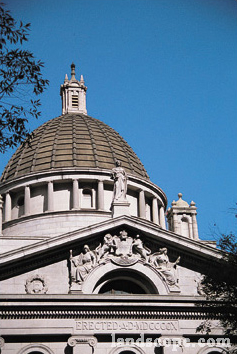
Glossary of common terms found in residential leasing in Hong Kong
Please note that in this glossary, the terms "lease" and "tenancy" are used interchangeably.
Agency Fees
Often referred to as "commission", this is the fee charged by all agencies for the services of their consultants. The fee is payable on any premises leased, purchased or introduced to you by your agent. Agents reserve the right to charge the Landlord or Vendor on the same fee structure. For rental the standard Agency Fee is one half of one month's rental and is payable upon signing the Formal Tenancy Agreement. For sale and purchase the standard fee is 1% of the purchase price and is payable upon signing the Formal Agreement for Sale and Purchase.
Air-Conditioning
An essential in Hong Kong's hot and humid climate, air-conditioning units are usually installed in the property by the Landlord. Air-Conditioning can be centrally installed and controllable in each room (known as "Central Air-Conditioning"), or provided by individual units. Individual units may be "window-type" (usually manually controlled) or "split-type" (usually remote controlled).
Break Clause
Sometimes the Landlord will grant a clause in the Formal Tenancy Agreement allowing the Tenant to give early notice after a specified period of occupation of the premises. The standard arrangement is for a two-year Lease with a two (or three) month Break Clause after 12 (or 15) months. This means that, after 12 months of the Lease, the Tenant can give the Landlord not less than two months' written notice of his or her intention to leave the premises. The advantage to the Tenant is that the amount of the Rent is guaranteed for two years although he or she may leave the premises after 14 months.
Break Lease
If the Tenant needs to leave the premises earlier than allowed for in the Formal Tenancy Agreement, he or she will try to find a "replacement" tenant to take over the Lease. This can be done in either of the following ways:
- The new or replacement tenant takes over the property until the expiry of the existing Lease
- The new or replacement tenant has a new two-year Lease granted by the Landlord.
In either case, the outgoing Tenant will need the permission and co-operation of the Landlord and should expect to pay the Landlord's share of the Agency Fees and Stamp Duty payable.
Commencement Date
This is the date that the Tenancy starts and from which Rent is payable. The Tenant may move in before the Commencement Date if he or she has a Rent-Free Period or later if he or she carries out his or her own Renovation or Decoration works.
Company Lease
In case of a Company Lease, the employee's company signs the Lease and is named as the Tenant. The employee is then known as the Occupant. The company usually requires the permission of the Landlord before substituting another occupant, even another company employee, although this is rarely opposed by the Landlord. The company is responsible for the payment of Rent and associated costs. (See also Personal Lease)
Communal Facility
A facility, such as a swimming pool or garden, shared by some or all of the occupants in the building or development.
Decoration
It refers to the state of internal decoration of the premises, not to be confused with Renovation. Most rental premises will have basic decoration of walls and ceilings painted in white and polished wooden floors. Carpet is rarely fitted due to the high humidity levels although many Tenants introduce rugs as part of their own Decoration.
Duplex
A two-storey apartment.
Electrical Appliances
Unless otherwise stated, you can assume that all properties have air-conditioning units installed. Other appliances often supplied/requested would be a fridge/freezer, washer/dryer, and a cooker. Note that unless you specifically ask for a "Western-style cooker" you will usually be supplied with a Chinese-style two-ring gas burner. Smaller appliances such as TV, hi-fi, or small kitchen appliances such as kettle are rarely supplied by the Landlord (except in Serviced Apartments). Note that even if the Electrical Appliances are provided by the Landlord, it is still the Tenant's responsibility to maintain, repair and replace the units. Appliances run on 220 or 240-volts and North Americans are recommended to purchase new appliances upon arrival in Hong Kong.
Estate Agency Agreement - Forms 1 to 6
Estate Agents in Hong Kong have been licensed since January 1999, regulated by the Estate Agents Ordinance and monitored by the Estate Agents Authority (EAA). The EAA have introduced several prescribed documents regulating the relationship between the Estate Agent and the client.
- Form 1 - The Property Information Form detailing information of a property for sale
- Form 2 - The Leasing Information Form detailing information of a property for lease
- Form 3 - The Estate Agency Agreement for sale of residential properties in Hong Kong for use between an Estate Agent and a Vendor
- Form 4 - The Estate Agency Agreement for purchase of residential properties in Hong Kong for use between an Estate Agent and a Purchaser
- Form 5 - The Estate Agency Agreement for leasing of residential properties in Hong Kong for use between an Estate Agent and a Landlord
- Form 6 - The Estate Agency Agreement for leasing of residential properties in Hong Kong for use between an Estate Agent and a Tenant
For the Tenant, the relevant forms are Form 2 and Form 6:
Form 6 includes details of the appointment of the Agent by the client, the validity period of the agreement, the agency relationship and duties of the Agent, Agency Fees, property information, disclosure of pecuniary or beneficial interest by the Agent, and details of properties introduced to the client by the Agent (including the amount of commission payable by the property owner).
An Estate Agent must also provide more specific information for each property introduced on Form 2 or Leasing Information Form, including details of the correct address, the registered owner, subsisting encumbrances, floor area, year of completion, user restrictions, and any restrictions on leasing. The client may waive his or her right to receive this information.
Please note that it is a legal requirement that Form 6 should be signed by both the Estate Agent and the Tenant and the Tenant must be given a copy for his or her information.
Estate Agent
It refers to an individual or a company that carries out the business of estate agency. In Hong Kong, all Estate Agents (individual and company) must be licensed and clearly display their licence number on all documentation including advertising. Complaints about an Estate Agent may be made to the Estate Agents Authority.
Estate Agents Authority (EAA)
This is the body set up to regulate the estate agency industry in accordance with the Estate Agents Ordinance. The body acts as an educator and regulator.
Exclusive Rental
This is the usual arrangement in Hong Kong and denotes that the Management Fees and Government Rates are payable by the Tenant. (See also Inclusive Rental).
Facilities
It is used to denote recreational facilities such as swimming pool, tennis or squash courts, gym, children's play area, residents' shuttle bus service, etc. Facilities are common in larger developments and usually entail higher Management Fees. The use of Facilities is usually included in the Rent although additional charges may be made for tennis or squash courts.
Formal Tenancy Agreement
See Tenancy Agreement.
Fully Furnished
It refers to a property which is furnished in full. Most properties in Hong Kong are supplied on an unfurnished basis. A Fully Furnished property will usually include basic furniture such as sofa and easy chairs, TV unit, dining table and chairs, beds and wardrobes. Soft furnishings will include curtains or blinds for the windows, and may include lamps and pictures. Items such as bed linen, crockery, cutlery and utensils are rarely provided by Landlords except in Serviced Apartments.
Government Rates
This is a property tax levied quarterly by the Hong Kong Government. Rates, a tax on occupation, are paid as 5% of the "rateable value" of the property, which is approximately equivalent to the annual Rent. Unless specified otherwise, Government Rates are payable by the Tenant.
Government Rent
Formerly "Crown Rent," this is a tax levied by the Hong Kong Government on some, but not all, properties depending on the Term of the Crown Lease of the property. Generally, all properties in Kowloon and the New Territories are liable to pay Government Rent whilst those on Hong Kong Island are currently less likely to be liable. The owner of the property should know at which point it will become liable for the tax. If applicable, Government Rent is calculated at 3% of the rateable value of the property and is charged quarterly together with Government Rates. Unless specified otherwise, Government Rent is payable by the Landlord.
Hand over
This is the procedure of handing the property from the Landlord to the Tenant. At this stage, the Estate Agent will assist the Tenant to check the internal and external condition of the property, check the Inventory, take details of meter readings, etc. A detailed handover report will be prepared and a copy given to both the Landlord and the Tenant. At the end of the Tenancy, a similar procedure is carried out, known as a "hand back".
Holding Deposit
It is usually equivalent to one month's rent and generally paid subject to contract (to the Landlord's solicitor) when an offer is made on a property and prior to receiving a draft Tenancy Agreement. This deposit becomes the first month's rent when the Tenancy Agreement is signed or is usually fully refundable in the event that the Tenancy Agreement is not signed by both parties.
House
Houses are rare in Hong Kong due to the high price of land. Most Houses will actually be "townhouses" meaning that they are attached on one or both sides to another house within a development. In this instance, each House will have its own garden or terrace and often a roof terrace. Detached Houses, extremely rare and accordingly expensive, are usually found on The Peak and in certain areas of the Southside, Kowloon, and the New Territories.
Inclusive Rental
This denotes that the Management Fees and Government Rates are payable by the Landlord. Unless otherwise negotiated or specified, an Exclusive Rental is the usual arrangement in Hong Kong.
Inventory
This is an itemised list attached to the Tenancy Agreement detailing furniture and fittings supplied with the property. Unless otherwise negotiated or specified, all items provided with the premises are to be left in the property at the end of the Tenancy Term.
Landlord
This may be a single individual who owns one property in a block, or a company which owns several units in various buildings, or a major developer who owns the entire development.
Landlord and Tenant (Consolidation) Ordinance
This is the government ordinance that regulates the relationship between the Landlord and the Tenant, and enforces certain rights and obligations on both parties.
Lease
See Tenancy Agreement.
Legal Fees
The Tenancy Agreement is usually prepared by the Landlord's solicitor and each party pays their own solicitor's fee. However, some Landlords insist that the Tenant bear half of the Landlord's solicitor's fee. Any expenses resulting from the Tenant consulting his or her own legal advisors will be his or her own responsibility.
Management Fees
Paid in addition to rent, these cover the cost of staffing, security, cleaning, and lighting of public areas and are generally paid monthly direct to the appointed management company of the building. Unless specified otherwise, the Management Fees are payable by the Tenant.
Occupant
Where the Tenancy is held under a Company Lease, the company is the Tenant and the employee is the Occupant. The Landlord's permission is required to change the Occupant.
Offer Letter
Once a property has been found and negotiations have begun between the Tenant and the Landlord, the Estate Agent will prepare an Offer Letter. The Letter should be signed by both parties, subject to contract and detailing all the main terms and conditions of the Tenancy including Rent, Term, Commencement Date and any necessary Decoration or Renovation works.
Personal Lease
A Personal Lease is where the individual signs the Lease in his or her own name and is responsible for paying the Rent and associated costs. See also Company Lease.
Purchaser
The buyer of a property for sale.
Relocation Allowance
Executives newly arrived from overseas will sometimes be given a Relocation Allowance by their company. This is to assist in the purchase of furniture, soft furnishings, Electrical Appliances and other necessary equipment but may also be used to assist with Decoration and Renovation costs.
Renovation
This usually denotes the state of internal repair of a property. To be fully renovated, a property should have new bathrooms and kitchen, electrical wiring and plumbing, and often new windows and doors. This should not be confused with Decoration which is usually basic.
Rent
This is the agreed monthly amount which remains constant for the Term of the Lease. Rent is normally payable monthly and in advance by the Tenant to the Landlord. Normally it excludes the monthly Management Fees and the Government Rates (payable quarterly).
Rent-Free Period
As part of the negotiations, a Landlord may offer a Rent-Free Period ranging from a couple of days to one or two months. This is much more commonly found in a slow-moving market.
Roof
It is used to refer to a terrace on the roof of a building rather than the ceiling of a unit. A roof terrace can be private (and therefore highly sought-after) or communal and shared by either all the occupants of the building or just those units on the top floor.
Sale and Purchase Agreement
This is the legal agreement drawn up between the Vendor and the Purchaser of a property and is signed in two stages:
1. Provisional Agreement for Sale and Purchase
Once the Vendor and the Purchaser have agreed on all of the terms, the Provisional Agreement is signed. This identifies both parties and the property, states the sale price and the amounts to be paid at various stages, and stipulates the commission to be paid by both parties to the Estate Agent. Upon signing the Agreement, the Purchaser must pay an initial deposit (usually equivalent to 3% of the purchase price) to the Vendor. Once this Agreement is signed, neither party can back out of the sale and purchase except by forfeiting the amount of the initial deposit and Agency Fees, plus the total amount of the Stamp Duty due.
2. Formal Agreement for Sale and Purchase
This is the detailed agreement stipulating all of the terms and conditions of the sale and purchase. This is always drawn up and handled by solicitors as part of the conveyancing procedure.
Security Deposit
This is usually equivalent to two months' Rent (sometimes plus, two months' Management Fees and Government Rates) and is payable by the Tenant to the Landlord upon signing the Formal Tenancy Agreement. The Security Deposit is held by the Landlord for the period of the Tenancy and, provided that the Tenant has upheld all conditions of the Tenancy (such as paying the Rent and bills, and maintaining the property in good condition), is refundable after the Tenancy period. Terms on which the Deposit is refunded should be stated in the Formal Tenancy Agreement; most Tenancy Agreements stipulate that the Security Deposit will be returned within seven to fourteen days after the Tenant moves out to give the Landlord time to check the condition of the property and see that all bills have been settled. Unlike many other countries, in Hong Kong the Security Deposit is repaid without interest.
Security of Tenure or Right to Renew
The existing Tenant will usually have the right to renew the Tenancy for a further term, provided that he or she has fulfilled the Tenant's obligations as stated in the Tenancy Agreement, and that he or she is willing to pay the market rent. The Landlord may take back the property if he or she needs it for his or her own personal use or intends to redevelop. Security of Tenure is strictly controlled by the Landlord and Tenant (Consolidation) Ordinance and is almost always in favour of the Tenant. Disputes are taken to the Lands Tribunal for settlement.
Serviced Apartments
These apartments are fully furnished and fully equipped with items such as bedlinen, towels, crockery, cutlery and kitchen appliances. Maid service is usually provided on a daily basis (with the exception of Sundays and Public Holidays) and includes general cleaning and changing of linen and towels. Rents at Serviced Apartments range from HK$15,000 per month for a small unit to over HK$120,000 for a luxury suite, and Terms range from one month to two years although many developments have a minimum Term of three months. Many developments have a wide range of recreational facilities.
Stamp Duty
A duty payable to Hong Kong Government on the signing of a Lease and generally calculated as 0.5% of the annual Rent, this charge is usually shared equally by the Landlord and the Tenant. A Tenancy Agreement that is not stamped cannot be produced as evidence in a court of law, nor does it protect the Landlord or the Tenant under the Landlord and Tenant (Consolidation) Ordinance and is therefore virtually useless. For a sale, the amount of stamp duty varies from HK$100 to 3.75% of the purchase price and is paid totally by the Purchaser.
Tenancy
A Tenancy or Lease is a legal contract between the Landlord and the Tenant. Normally it lasts for two years.
Tenancy Agreement
This is the formal agreement stipulating all the terms and conditions of the Tenancy. Agreements are usually prepared by the Landlord's solicitor and run to several pages. It is often advisable for the Tenant to have his or her own solicitor to review the Agreement and in this case the Tenant would bear his or her own Legal Fees. Upon signing the Tenancy Agreement, the Tenant must pay the Security Deposit to the Landlord. The Tenancy Agreement is signed by both parties, in duplicate, and must have the Stamp Duty paid.
Tenant
Under a Company Lease, the company is usually termed the "Tenant" whilst the employee is the "Occupant". Occasionally, Landlords may grant a Personal Lease which allows the individual to sign the Tenancy Agreement.
Term
Tenancies in Hong Kong normally last for two years. Sometimes, Landlords will agree to a Break Clause which means that the Tenant can give early notice of termination, usually with two or three months' written notice after 12 or 15 months' occupancy.
Triplex
A three-storey apartment.
Utilities
This is the term used to cover the supply of electricity, gas, water and telephone to a property. Sometimes the Landlord will leave the utility accounts in his or her name (except the telephone account); in this case the bills will arrive in the Landlord's name but must be paid by the Tenant. However, usually the Tenant need to register the utility accounts in his or her own name. To change the accounts to the Tenant's name, the utility companies will ask for a deposit which is usually charged to the first bill and is refundable when the account is closed. All utility companies will ask for a copy of the individual's Hong Kong identity card or the company's business registration certificate.
Vendor
The owner of a property for sale.


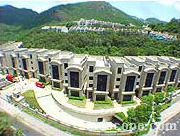
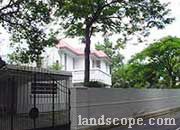
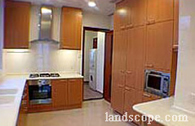
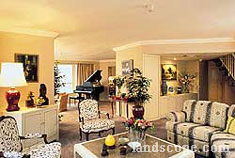

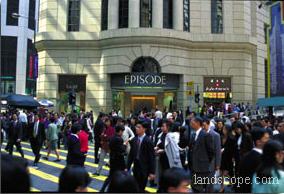





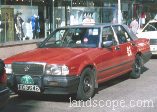


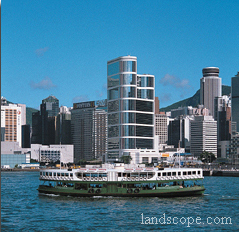

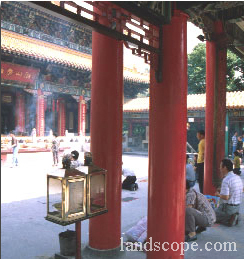

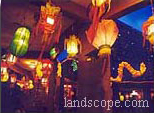
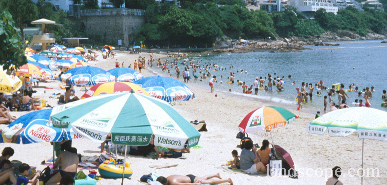


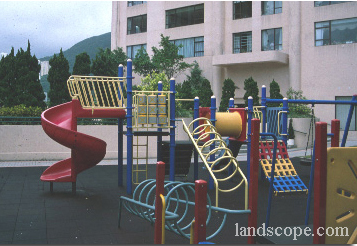
Social Athletics Club
Hong Kong has many clubs for many purposes. Below is a partial listing of some of the larger organisations in the territory.
Aberdeen Boat Club
20 Shum Wan Road, Aberdeen, Hong Kong
Tel: +852 2552-8182
Aberdeen Marina Club
8 Shum Wan Road, Aberdeen, Hong Kong
Tel: +852 2552-8182
American Club Country Club
28 Tai Tam Road, Hong Kong
Tel: +852 2813-3200
American ClubTown Club
47/F, Exchange Tower Two, Central, Hong Kong
Tel: +852 2842-7400
China Club
13/F Old Bank of China Building Bank Street, Hong Kong
Tel: +852 2521-8888
Clearwater Bay Golf and Country Club
Lot 227 241
Tel: +852 2335-3788
Craigengower Cricket Club
188 Wong Nai Chung Gap, Happy Valley, Hong Kong
Tel: +852 2577-8331
Discovery Bay Golf Club
Discovery Bay Lantau Island Hong Kong
Tel: +852 2987-7273
Dynasty Club
Southwest Tower, Convention Plaza1 Harbour Road, Wan Chai, Hong Kong
Tel: +852 2824-1122
Foreign Correspondents' Club
2 Lower Albert Road Central, Hong Kong
Tel: +852 2521-1511
HK Football Club
Sports Road Happy Valley, Hong Kong
Tel: +852 2882-7470
Helena May
35 Garden Road Central Central, Hong Kong
Tel: +852 2522-6766
Hong Kong Club
1 Jackson Road, Central, Hong Kong
Tel: +852 2525-8251
HK Country Club
Deep Water Bay, Hong Kong
Tel: +852 2552-4488
Hong Kong Golf Club
19 Island Road Deep, Water Bay, Hong Kong
Tel: +852 2812-7070
Hong Kong Cricket Club
137 Wong Nai Chung Gap Road, Hong Kong
Tel: +852 2574-6266
Hong Kong Jockey Club
25 Shan Kwong Road
Happy Valley, Hong Kong
Tel: +852 2966-1333
Kowloon Cricket Club
10 Cox's Road, Kowloon
Tel: +852 2367-4141
Ladies Recreation Club
10 Old Peak Road Mid-levels, Hong Kong
Tel: +852 2522-0151
Royal Hong Kong Yacht Club
Kellett Island, Causeway Bay, Hong Kong
Tel: +852 2832-2817
South China Athletic Association
Caroline Hill Road, Causeway Bay, Hong Kong
Tel: +852 2577-4427
YMCA
4/F., Administration Building, 23 Waterloo Road, Kowloon
Tel: +852 2771-9111
YWCA
1 MacDonnell Road, Central, Hong Kong
Tel: +852 3476-1300